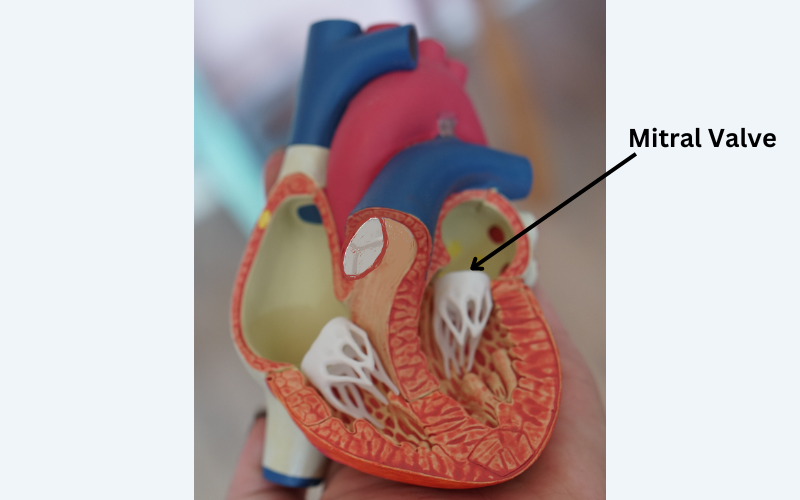
Mitral valve and Mitral valve surgery
What is the mitral valve?
The heart has four valves that allow blood to flow in one direction and prevent flow in the opposite direction. This is the same function as valves used in plumbing. The mitral valve is part of the left side of the heart and is effectively between the lungs and the heart. It is located between the chamber that receives 'pure' blood from the lungs and the main pumping chamber of the heart. The function of the mitral valve is therefore to allow unobstructed blood flow from the lungs into the pumping chamber when open and to stop blood flowing back towards the lungs when closed.
What can go wrong with the mitral valve?
Generally the mitral valve is made up of two flaps. Usually the mitral valve carries on doing its job well over a person’s lifetime. For unknown reasons, in some people however, the mitral valve can develop problems. One of the most common reasons in the developed world is related to ‘wear and tear’ with ageing, so called degenerative changes. This can lead to blood leaking back through the valve towards the lungs. Sometimes there can be calcium and scar deposition on the valve making the flaps hard and inflexible. This can make the valve obstructive. The valve can also be affected by infection causing destruction and lead to malfunction.
How does a faulty mitral valve matter?
When the mitral valve is abnormal and starts leaking or becomes obstructive, the heart function can be affected. It can also affect the lungs and all this can result in symptoms affecting exercise tolerance and quality of life. In advanced stages, it can lead to various other problems for e.g. it can affect the right-sided Tricuspid valve or cause rhythm problems. If left untreated for too long, it can lead to complications which can impact on life-expectancy.
What are the treatment options for a diseased mitral valve?
An abnormal valve may be found as part of unrelated tests. Not all abnormal valves need treatment only because an abnormality has been found. When the condition is in its early stages, the heart can cope well and people may not feel any symptoms related to this. Your doctor may organise regular follow-up for this because the condition can be progressive. Some medications can sometimes be helpful to allow the heart to cope better with the effects it faces due to the diseased mitral valve.
However when the leak or obstruction is bad enough to cause symptoms or affect the heart function, more radical treatment is required to stop further problems. This has been in the form of surgery. However there are other options that have been developed in the last few years and may be a suitable option for some patients.
What does Mitral Valve surgery involve?
It depends on what is wrong with the Mitral valve but it is often possible to repair the valve. However sometimes the valve is too badly damaged to allow repair or repair does not work well and in these situations, the valve needs to be replaced with an artificial valve.
Which treatment option is better?
Repair is considered overall a better option due to several advantages of having one’s own valve compared to living with an artificial valve. Repair can be technically more complex and therefore surgeons wishing to develop expertise in mitral valve surgery undergo special training focussed on this.
A surgeon would normally be able to give you an approximate idea of the likelihood of a mitral valve being repairable. When replacement is required, there are options to consider. Some information is available here but a heart surgeon will be able to discuss this in more detail.
Are there other options for treating mitral valve problems?
Yes, there are cardiology procedures that are alternatives to surgery. A balloon can be used to stretch open a narrowed valve and there are some other options that have been developed more recently to treat leaking valves. However these are not necessarily an option for all patients or for all valve conditions and treatment needs to be individualised.
Leave a comment/ Ask a question
Practice Locations
My primary workplace is John Radcliffe Hospital, part of Oxford University Hospitals, Oxford. However I see patients referred from a number of hospitals across a wide area including Northampton General Hospital, Northampton (Northamptonshire); Great Western Hospital, Swindon (Wiltshire); Milton Keynes University Hospital, Milton Keynes (Buckinghamshire); Jersey General Hospital, Jersey; Kettering General Hospital, Kettering (Northamptonshire); Wycombe Hospital, High Wycombe (Buckinghamshire) etc.
About Me